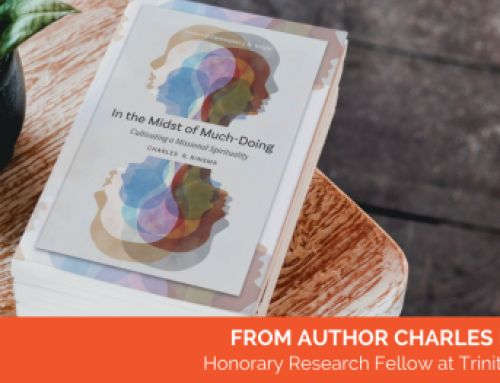Marty Sampson has spent half his life (20 years) writing worship music and leading thousands of Christians in singing those songs. Is it surprising, then, that he’s recently gone public about “losing his faith”? I don’t think so.
I’m not making a sweeping statement about Hillsong Christians, and I don’t know Marty personally. The reason I’m not surprised is because of what precipitated his Instagram soapbox moment.
As he puts it—no less than four times in his short post—“no one talks about it”.
Marty has seen preachers fall from the grand pedestals the church has placed before them. He hasn’t seen many miracles, in spite of worshipping in a church that talks about signs and wonders on a regular basis. He acknowledges that the Bible contains some serious tensions (he calls them ‘contradictions’). And he struggles to believe that God is love and can nonetheless send four billion of his own creations ‘to a place’ (I’m guessing he means hell).
I’ve been around long enough to know that none of these things are new issues that Hillsong is facing. These were all live issues in the 90s when Hillsong United launched their first album, with Marty as a frontman.
The problem here has been identified with pinpoint precision by Marty himself: he wants to hear people talk about these things—and apparently, no one is doing so. At least not where Marty’s been hanging out.
Marty says, “I want genuine truth. Not the ‘I just believe it’ kind of truth.”
Who doesn’t?
I remember wrestling with my own faith in my teenage years because my mum, who trusted God deeply, was slowly dying from a range of health problems that just wouldn’t go away. It didn’t matter how many prayer meetings our family attended, or how much she genuinely believed in God’s power to heal. Nothing changed. (I’ve reflected on that elsewhere, if you’re interested).
My mum died 10 years ago, but my faith in God lives on. Why? Because as I grew up through my teens, twenties and beyond, I talked about it.
I talked about miracles, hell, moral failure and forgiveness with friends and family. As I got older the questions multiplied and intensified, I talked about it more with church leaders and theology lecturers.
My purpose here is not to compare myself to Marty or to say that he should have studied theology instead of playing music. Not at all.
The problem here, which Marty has identified (and which I have experienced myself), is that many churches and denominations don’t encourage questions. No, it’s more serious than that: tough questions are frowned upon. You can think them, sure, but don’t say them out loud, or you might ‘cause your brother to stumble’! (That’s not what Paul was talking about when he used that phrase, by the way.)
One of the biggest problems facing the church today, in my humble opinion, is the inability to converse with the world about matters of science and faith, God and suffering, human sexuality, and the like. When churches shut down questions instead of addressing them, they’re practically pointing people to the exit sign. It’s only a matter of time, isn’t it?
I’ve attended plenty of churches where “no one talks about it”. Sometimes it’s because church leaders are ill-equipped to answer such questions, and sometimes a culture of taboo develops where certain questions and issues are “off the table”. In any case, the silence is deafening.
For my part, I’ve found a home in the Uniting Church in Australia, a movement that invites questions, permits theological diversity (the Bible itself is theologically diverse, as Marty observes), but is anchored in credal Christianity. I feel at home working for the Uniting Church in Australia because we all have questions.
Does anyone go through life without asking why God heals some people and not others? Or how a loving God can send his own beloved creatures to burn in hell? Or how—and whether—God continues to speak through morally duplicitous preachers?
In his Instagram post, Marty wrote that “Science keeps piercing the truth of every religion.” It’s such a shame when science and faith are assumed to be polar opposites like this. Science and faith can not only be reconciled, but they can (and should) inform and enrich a holistic understanding of all of life—including what is tangible and what isn’t. I guess no one talked to Marty about this either.
The point I want to make is simply this: questioning your faith is good for you. Don’t quench curiosity. And don’t assume that everything has to be resolved in black and white terms. That’s what one theologian, who learned the value of asking tough questions the hard way, calls “the sin of certainty”.
Marty finished his post by acknowledging, “All I know is what’s true to me right now.” That’s right, Marty. That’s all any of us know. And I, for one, would love to grab a pint with you and discuss what’s been vexing you.
Let’s talk about it.
Paul Jones is Principal of Trinity College Queensland, where he lectures in Old Testament and Preaching.






